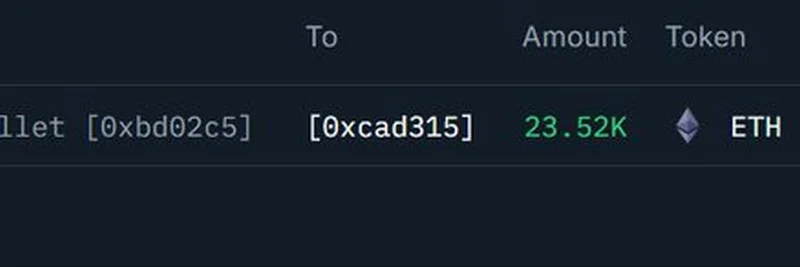Why Saylor Can't Stop Buying Bitcoin: Udi Wertheimer's Insightful Analysis
In a recent episode of Unchained, hosted by Laura Shin, Udi Wertheimer, a prominent figure in the Bitcoin community, delved into an intriguing perspective on the current state of the Bitcoin market. Wertheimer's analysis focuses on why Michael Saylor, the CEO of MicroStrategy, and other corporate treasuries are seemingly unable to halt their Bitcoin acquisitions. This phenomenon, according to Wertheimer, is transforming the market from one dominated by forced sellers to one driven by forced buyers.
The Shift from Forced Sellers to Forced Buyers
Wertheimer's argument hinges on the idea that past market cycles were characterized by forced sellers—entities like SBF (Sam Bankman-Fried), 3AC (Three Arrows Capital), and miners who were compelled to sell their Bitcoin holdings due to financial distress or other pressures. However, the current cycle, Wertheimer suggests, is markedly different. Now, we are witnessing the rise of forced buyers, with corporate treasuries leading the charge.
Michael Saylor's Compulsion to Buy
Michael Saylor's aggressive Bitcoin buying strategy has been well-documented. MicroStrategy, under Saylor's leadership, has accumulated a significant portion of Bitcoin, making it one of the largest corporate holders. Wertheimer argues that Saylor is not just choosing to buy Bitcoin; he is compelled to do so. This compulsion arises from the market dynamics and the strategic positioning of corporate treasuries.
Wertheimer explains that if Saylor were to stop buying, the market could face a significant downturn. The continuous buying pressure from corporate treasuries helps maintain and potentially increase Bitcoin's price. This creates a scenario where not buying could lead to a loss of confidence and a subsequent drop in value, which would be detrimental to MicroStrategy's holdings and overall strategy.
The Role of Corporate Treasuries
Corporate treasuries, including MicroStrategy, have become a stabilizing force in the Bitcoin market. Wertheimer points out that these entities are adding to the buying pressure, which contrasts sharply with the selling pressure exerted by forced sellers in previous cycles. This shift is crucial because it changes the market's behavior, making it less volatile and more resilient to price drops.
The rationale behind this buying pressure is multifaceted. For one, Bitcoin is seen as a hedge against inflation and a store of value, much like gold. For corporate treasuries, holding Bitcoin can be a strategic move to diversify their assets and protect against economic uncertainties. Additionally, the continuous buying helps in maintaining a positive market sentiment, which is essential for the long-term viability of their investments.
Market Implications
The implications of this shift are profound. Wertheimer's analysis suggests that the Bitcoin market is entering a new phase where the dynamics are driven by the need to buy rather than the need to sell. This could lead to a more stable market environment, but it also raises questions about sustainability. If corporate treasuries continue to buy without a corresponding increase in demand from other market participants, the market could become overly reliant on these entities.
Furthermore, Wertheimer's insights highlight the importance of understanding market cycles. The transition from forced sellers to forced buyers indicates a maturing market, but it also underscores the need for careful monitoring of these dynamics. As the market evolves, the strategies of corporate treasuries will play a critical role in shaping its future.
Conclusion
Udi Wertheimer's analysis on Unchained provides a compelling perspective on the current state of the Bitcoin market. By focusing on why Michael Saylor and other corporate treasuries are compelled to continuously buy Bitcoin, Wertheimer sheds light on the shifting dynamics from forced sellers to forced buyers. This transition is not just a market phenomenon; it is a strategic necessity that could define the future of Bitcoin.
For those interested in the intricacies of the crypto market, Wertheimer's insights offer valuable lessons on market behavior, corporate strategy, and the evolving role of Bitcoin in the financial landscape. As we move forward, keeping an eye on these developments will be crucial for understanding the next chapter in the Bitcoin story.




